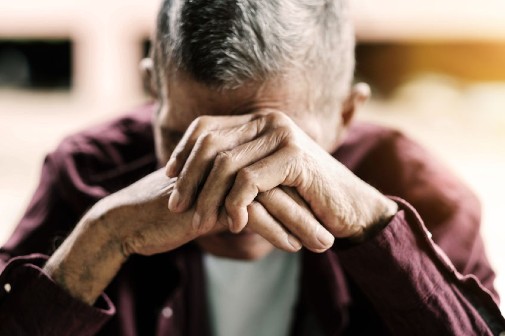Researchers to trial intervention aimed at helping older people isolated during COVID-19 lockdown
Posted on 20 May 2020
 Isolation is likely to impact significantly on the mental health of vulnerable populations.
Isolation is likely to impact significantly on the mental health of vulnerable populations.
Enforced isolation, whether this is due to shielding or self-isolation, causes disruption to daily routines, loss of social contact and loneliness which can lead to mental ill-health. Many more people will now be isolated as the lockdown continues for particular sections of society.
Isolation is likely to impact significantly on the mental health of vulnerable populations. Older people, and those with long-term conditions, represent a high risk group, whose risk of depression is already increased by around a factor of 2-3 times.
Intervention
The researchers have developed an intervention, delivered by trained support workers, over the telephone, and over up to eight sessions.
The impact of this intervention will be evaluated to see if depression symptoms can be prevented or improved, during the time of lockdown, and whether the intervention is acceptable to older adults and to support workers.
Researchers will also evaluate whether this reduces levels of anxiety and feelings of loneliness.
Depression
The trial is being led from York by Professor Simon Gilbody, Director of the Mental Health & Addictions Research Group (MHARG) at the University of York, and Professor David Ekers, Honorary Professor, University of York, Clinical Director of Research and Development at Tees Esk and Wear Valleys NHS Foundation Trust.
Professor Gilbody said: “Our University-NHS partnership is ideally placed to respond to new societal challenges of COVID-19.
“Older people and those with long term conditions have now entered enforced isolation, and this risks an explosion of loneliness and depression for this vulnerable population.
“We propose to rapidly adapt an existing programme to test whether our intervention can prevent and mitigate the onset of depression and loneliness among older people.”
Shielding
Professor Carolyn Chew-Graham, a GP and leading researcher in the mental health of older people, based at Keele University added, “COVID-19 will inevitably impact on the mental health of older people. We know that social isolation does not inevitably lead to depression and loneliness, but having physical health problems is a risk factor for depression, and the additional stress of social isolation or shielding may well cause people to suffer from low mood and anxiety. In this study, we will test how we can maintain older people’s mental health during this difficult time”.
The research team hope to deliver a very brief and manualised intervention that can be delivered at scale in the UK and overseas.
Professor David Ekers, who works both at the University of York and the Tees Esk and Wear Valleys NHS Trust, added: “We have been researching in this area for the past 10 years, and we are ideally place to help establish ‘what works’ in maintaining good mental health during the lockdown. This represents a great alliance between the Universities and the NHS to address one of the major challenges posed by COVID.”
The project is funded by the National Institute for Health Research (NIHR).
Further information:
The National Institute for Health Research (NIHR) is the nation's largest funder of health and care research. The NIHR:
- Funds, supports and delivers high quality research that benefits the NHS, public health and social care
- Engages and involves patients, carers and the public in order to improve the reach, quality and impact of research
- Attracts, trains and supports the best researchers to tackle the complex health and care challenges of the future
- Invests in world-class infrastructure and a skilled delivery workforce to translate discoveries into improved treatments and services
- Partners with other public funders, charities and industry to maximise the value of research to patients and the economy
The NIHR was established in 2006 to improve the health and wealth of the nation through research, and is funded by the Department of Health and Social Care. In addition to its national role, the NIHR supports applied health research for the direct and primary benefit of people in low- and middle-income countries, using UK aid from the UK government.
Explore more news

Sodium channels in breast cancer cells a promising target for future treatments, study reveals
Thursday 25 July 2024

Cooling the classroom: University of York researchers to investigate UK schools’ responses to hot weather
Wednesday 24 July 2024

Hunter-gatherers kept an 'orderly home' in the earliest known British dwelling, study shows
Tuesday 23 July 2024

Study uses Game of Thrones to advance understanding of face blindness
Tuesday 23 July 2024

York academic contributes to new report on men’s health which reveals disparities between most and least deprived areas in the UK
Wednesday 17 July 2024
Media enquiries
About this research
Academics from the universities of York and Keele, working in partnership with the Tees, Esk and Wear Valleys NHS Foundation Trust and Hull York Medical School, are researching the problems of loneliness and social isolation during the COVID-19 pandemic. Explore our research
Our response to the coronavirus pandemic
We're working with partners in York and further afield as part of a global effort to fight the COVID-19 virus. From covid analysis in the labs to producing face shields for the frontline, we're using our knowledge and expertise to support the effort.
